RHI scandal: Stormont faces public inquiry or independent investigation choice
- Published

The Renewable Heat Incentive scheme was an attempt by the Northern Ireland Executive to help to increase consumption of heat from renewable sources
As the 'cash-for-ash' scandal rumbles on, attention has turned to how the controversial scheme will be investigated.
Sinn Féin has been accused of flip-flopping on whether the botched scheme should be subject to a full public inquiry or an independent investigation.
On Monday, Sinn Féin MLA Declan Kearney issued a press release and article to republican newspaper An Phoblacht calling for a "comprehensive, independent public inquiry".
Hours later, the statement was withdrawn and reissued with one change - the words "public inquiry" were replaced with "investigation".
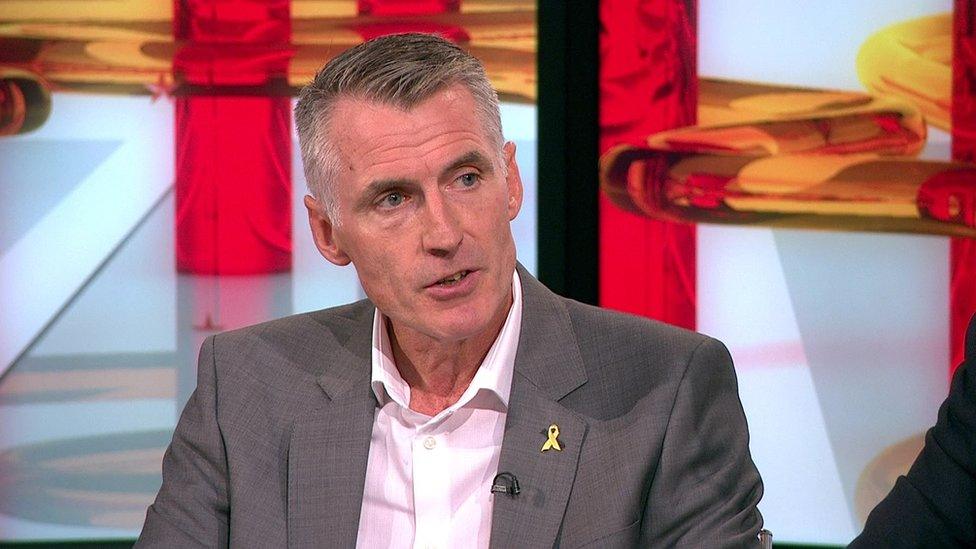
Sinn Féin's national chairperson Declan Kearney initial call for a public inquiry was put down as a "typo"
Sinn Féin put the error down to a "typo" but, according to the News Letter, external, late on Tuesday night Mr Kearney re-released the initial statement from his personal email address with the words: "Please share this important information widely."
Meanwhile, Belfast City Council on Tuesday passed a motion calling for a full public inquiry.
But, why does this matter? What's the difference between public inquiry and investigation?
A public inquiry could be called by Stormont under the Inquiries Act 2005.
The main reason opposition parties favour a full public inquiry is because, under law, it can compel witnesses to give evidence and documents to be released.
Also, as the name suggests, there is a presumption that hearings for a statutory inquiry will take place in public.
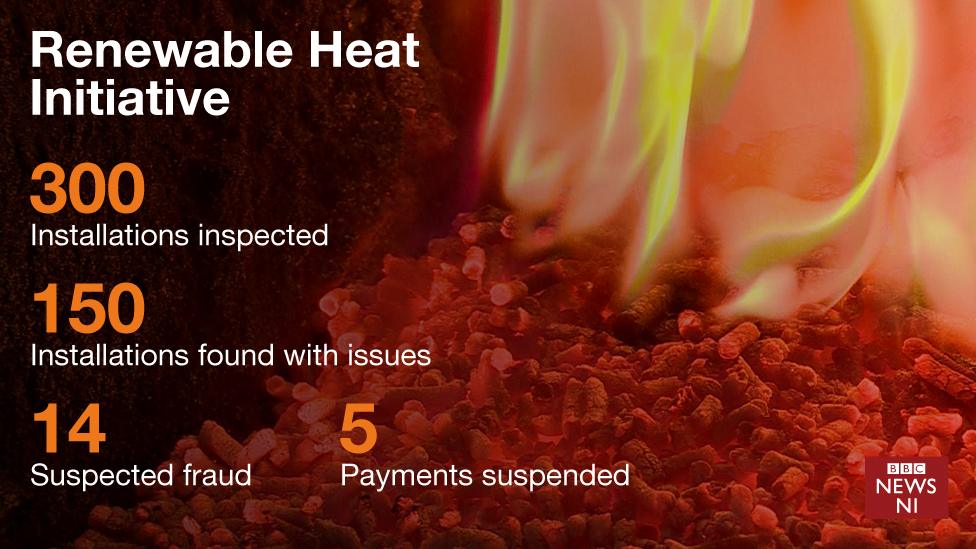
These types of inquiries are considered the most comprehensive and transparent available.
However, for non-statutory inquiries, external - such as the independent investigation proposed by Sinn Féin and the DUP - no such rules apply.
Any independent investigation will have to have its terms of reference and procedures agreed by Stormont.
That means the investigation could have no powers to compel witnesses and could be held in private, depending on what is agreed.
These types of inquiries are not uncommon. For instance, the Chilcot Report into the Iraq War was compiled on a non-statutory basis.
So why oppose a public inquiry?
Since public inquires have to meet statutory conditions as outlined in the Inquiries Act, there is a belief by some that it could take too long and cost an enormous amount before answers are found.
For instance, a public inquiry into the death of Billy Wright published its findings in 2010, five years after the inquiry was announced. It cost £30.6m.
The inquiry into the death of Robert Hamill was announced in 2006 and published an interim report in 2010. Its full report has not been published because of legal proceedings. The inquiry has cost £33m to date.

The inquiry into the death of Billy Wright lasted five years and cost over £30m
DUP MP Gregory Campbell said such inquiries can last "10 to 12 years" and that the party favours a "time-bound investigation".
Likewise, Sinn Féin has said only an independent investigation with a time limit, led by a judicial figure from outside of Northern Ireland, would provide answers in a quick fashion.
"We think the public want the truth, but they also want the truth as quickly as possible," said Jim McVeigh, a Sinn Féin councillor in Belfast.
"They don't want to wait a year, or two years, like some of these public inquiries can take, so we think the best way to do this is a robust, transparent investigation that will get to the truth quickly."
But others are unconvinced?
That's an understatement.
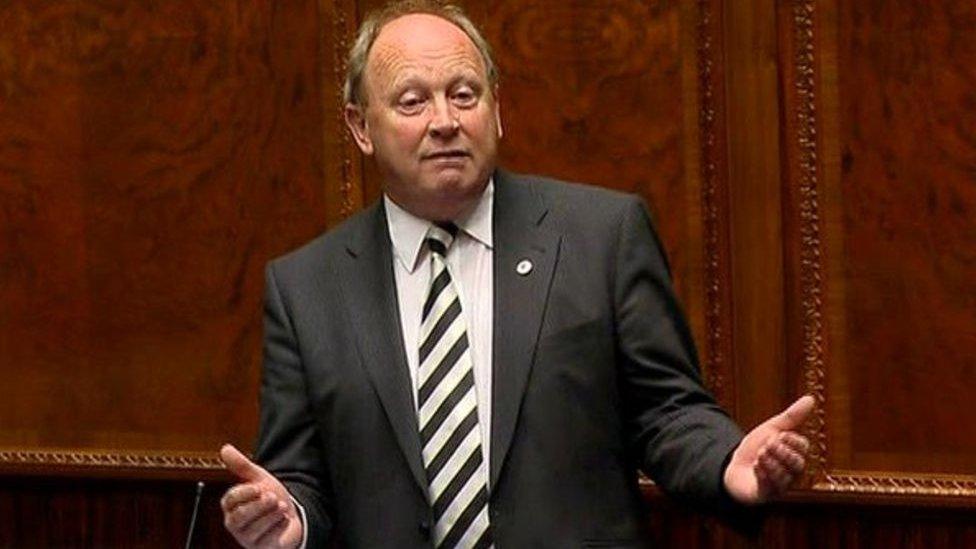
TUV leader Jim Allister anything less than a public inquiry would be a "whitewash"
Alliance Party leader Naomi Long said it was "nonsense" to suggest a public inquiry could take years while the SDLP's Patsy McGlone said the "public are wise to the Sinn Féin two-step".
TUV leader Jim Allister has insisted anything less than a full public inquiry would be a "whitewash".
How could an independent investigation get to the bottom of what happened then?
Crucially, Sinn Féin say that any investigation should be on the basis that witnesses are compelled to give evidence - just like a public inquiry, but without the statutory basis.
Sinn Féin MLAs Declan Kearney, Michelle O'Neill and Conor Murphy have all said this condition must be included in the terms of reference for an investigation.
These terms of reference have to be agreed with the DUP - so whether they agree or not is unclear.
Also, it's not apparent how a non-statutory inquiry can make people give evidence in the same way as a public inquiry. A House of Commons briefing paper on non-statutory inquiries, external describes them as "essentially reliant on the co-operation of those involved".
Sinn Féin leader Gerry Adams has said his party took legal advice over Christmas that "pointed to the need to address in clear terms the issue of compelling persons and papers in any investigation to make it effective".
Couldn't the British government step in over the heads of Stormont?
They've already been asked and they've said no.
Naomi Long wrote to Secretary of State James Brokenshire to request they take steps to set up a full public inquiry.
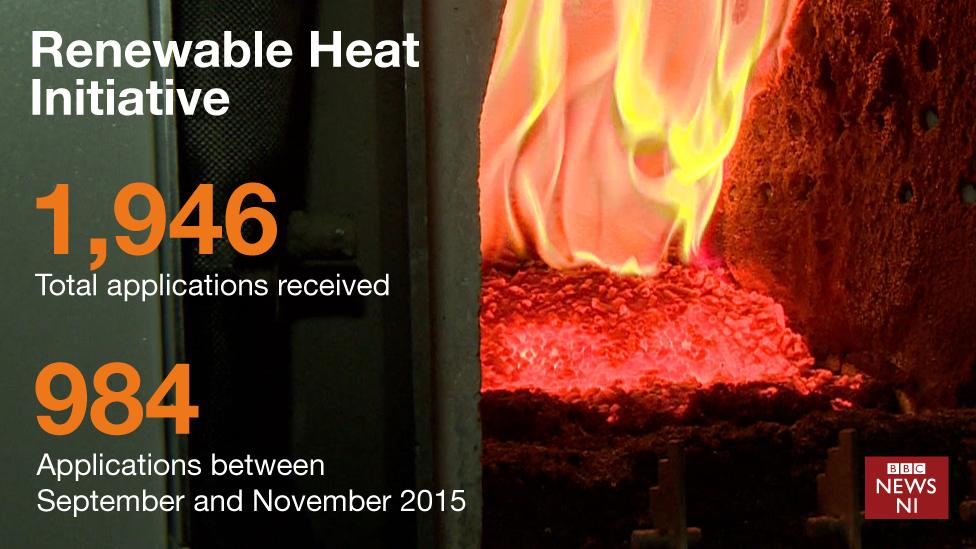
But the government has said since the RHI was a Stormont matter, it was up to Stormont to investigate.
Meanwhile, the News Letter has also reported, external that Northern Ireland's Attorney General cannot set up an inquiry either, as suggested by Sinn Féin.
So, what's next?
DUP and Sinn Féin have both said they are discussing terms of reference for a possible inquiry, although Sinn Féin has said nothing has yet been agreed.
Sinn Féin's Conor Murphy said proposals from the head of the civil service were "insufficient" and that the investigation should be "robust, transparent, time-framed and led by a senior judicial figure from outside the jurisdiction and with the power to compel witnesses".
It seems likely the next twists in the RHI story will centre on just how Stormont goes about investigating this £490m scandal.
- Published4 January 2017

- Published4 January 2017
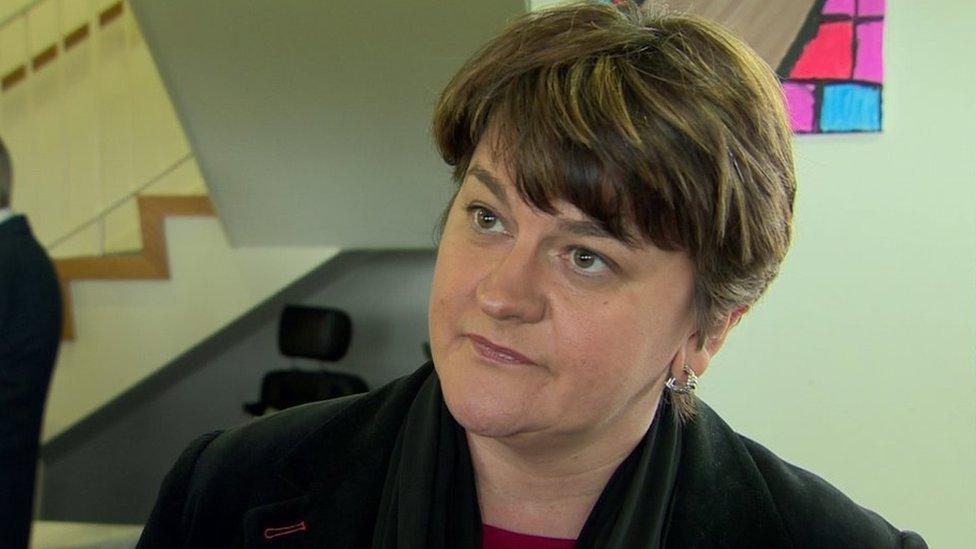
- Published30 December 2016
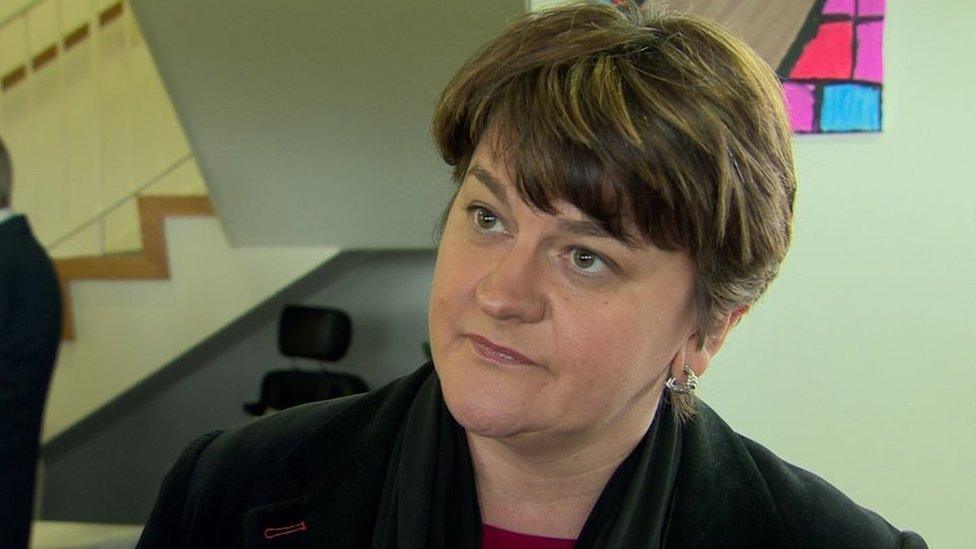
- Published23 December 2016

- Published7 November 2017
